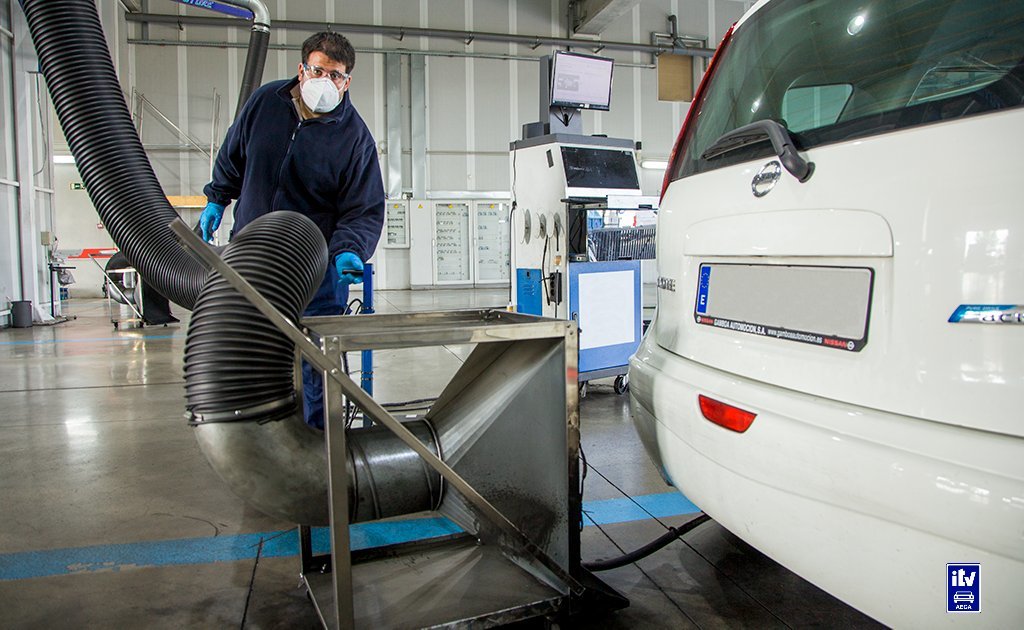ITV 200 euros fine even if the car is stopped, parked or not circulating
New ITV will know the real consumption of cars
Podcast Hoaxes and truths when going through the ITV
When
dieselgate
broke out seven years ago due to the manipulation of engines in VW Group cars, it was discovered that the whole deception
revolved around an element that was especially harmful to human health: NOx.
The scandal, committed exclusively in vehicles with diesel engines, led to the demonization of diesel and has ended up being another catalyst for the electrification of the automobile industry.
But despite this, NOx remains unmeasured throughout the life cycle of a car.
It is only taken into account to achieve its homologation,
through the different Euro standards (let's go for 6) that set increasingly strict emission thresholds.
Third reason for rejection
After this procedure, neither the NOx nor the particles - so small that they can enter the bloodstream - are measured when the car goes to the ITV.
Currently, defects related to polluting emissions
are the third cause of failed inspections, with 17% of all failures.
The first has to do with lights and signage.
Germany, Holland, Belgium have long since started working on the design of a method to control this pollution.
Also in Spain, where a protocol developed by the Carlos III University at the request of Aeca-ITV,
the employers' association that encompasses these businesses, has just been presented (delayed due to the pandemic).
ahead of the European
According to Guillermo Magaz, managing director of the latter, the Spanish proposal "is ahead" of the others designed in Europe, since "it is faster and easier for the customer and makes the car suffer less".
Specifically,
three 15-second tests would be carried out: one at idle, another by raising the engine speed to 1,500 revolutions per minute, and back to idle.
But when will this new requirement be mandatory?
"Frankly, best-case scenario, not before 2023,"
she notes.
Although it could be delayed two more years.
The reason is that the next EU ITV directive will address precisely these new control systems and
"probably will not require them until 2025".
In order for that period to be shortened, it is necessary that everything be put on a face, starting with the fact that the Spanish Government -through the Ministry of Industry- decided to accelerate its implementation due to its environmental effects.
See that the systems work
"That does not mean that the oldest cars are going to suspend the ITV from that date"
specifies the managing director of the employers' association to ward off alarmism.
More than measuring NOx and particulate levels,
what will be done is to check that the systems installed to limit them are working properly.
"When they don't work properly, particle levels skyrocket."
In this way, the inspected vehicles will be those that have these devices: basically,
passenger cars that are Euro5 onwards and registered from 2011.
But, in order to have a more precise picture of what pollutes the park, «the objective is that all cars do the test, "says Magaz.
"Although
a Euro3 car cannot be asked to have these systems."
Other electronic controls
Another question is that the result of the particle measurement can be made equivalent to that of the smoke test that the ITV centers do today.
In the case of diesel vehicles, the opacity of the gases is controlled, and the level of CO2 in gasoline vehicles.
Since autumn 2018, the inspection centers have already checked through the electronic port (OBD)
that the anti-pollution devices have not been tampered with or disconnected, and that they work correctly.
Since 2020, they have done the same with safety elements such as the airbag or ESP.
Conforms to The Trust Project criteria
Know more
ITV
Traffic

